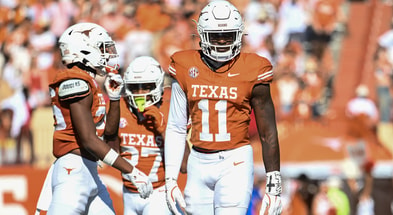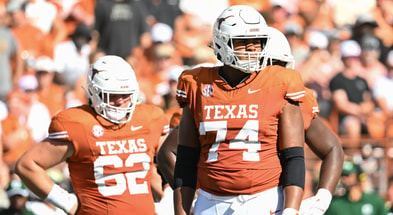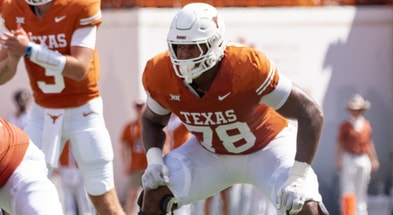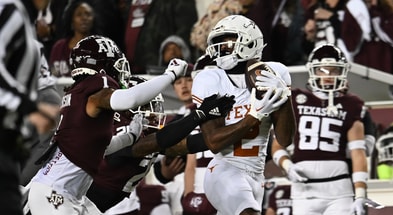Texas state law regarding NIL finds itself in the NCAA's crosshairs, likely setting up a legal battle
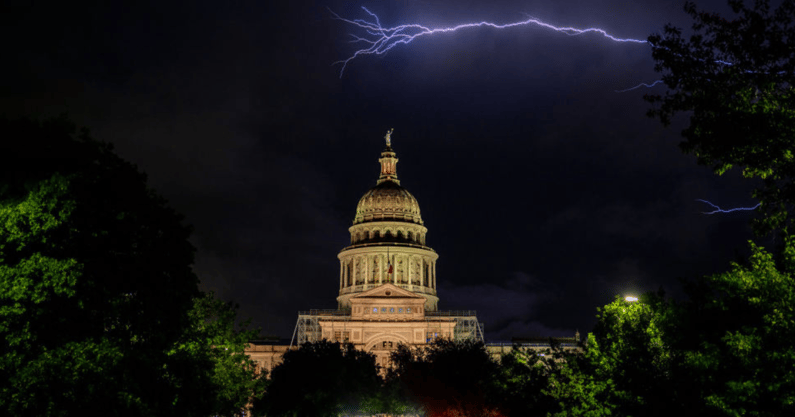
Texas Gov. Greg Abbott signed Texas House Bill 2804 on June 10, a piece of legislation with overwhelming bi-partisan support in both chambers, that presented sweeping NIL changes which enter into effect on July 1. The bill followed examples from other states that, in the words of On3’s Jeremy Crabtree, provided “cover for state schools from being punished by the NCAA for any NIL-related violations, including any committed by collectives that have been set up to support student-athletes through deal facilitation.”
[Join Inside Texas today and get the best Texas Longhorns insider team info and recruiting intel!]
That bill gave license to schools, including Texas, to link loyalty points that typically are associated with booster club season ticket donations with contributions given to NIL collectives legally unaffiliated with the school.
On June 16, in response to Abbott’s signing of HB 2804 into law, Longhorn athletics director Chris Del Conte announced that donations given to the Texas One Fund would allow for current donors to the Longhorn Foundation, an entity under the UT athletic department’s purview, to receive loyalty points applicable toward football season tickets once the law goes into effect on July 1.
Texas is using the state law as a way to protect themselves from NCAA regulations, which have restrictive rules regarding those types of systems, something the organization reminded member institutions of on Tuesday.
On3’s Pete Nakos obtained a memo sent to NCAA members that had six questions and answers regarding the NCAA’s interim policy in the ever-changing landscape of NIL in college athletics. Several of the answers aligned with Texas state laws.
Two clearly did not, likely setting up a legal battle at some point between the NCAA and a state with laws like upcoming Texas law, if not Texas itself.
The two that did not were answers to Question 3 and 6.

Longhorn Foundation loyalty points have been essential in the purchase of Texas season tickets dating back to 1986. Donations to Longhorn Excellence, a fund “dedicated to creating the competitive edge for Texas student-athletes in academics, in athletics and in life” net the most points, five, per $100 donated. Other types of donations net decreasing amounts of loyalty points.
Whether or not loyalty points count under the definition of “tickets, suite access, club seating” is unclear. The Longhorn Foundation’s website says, “Loyalty Points will not impact your current season seat location. They will, however, provide you with your priority order which determines your ranking if you choose to add, move, or upgrade your seats.”
The NCAA, however, will likely argue it falls into that category.
Del Conte’s announcement regarding loyalty points was the most prominent institutional stamp of approval given to the Texas One Fund since the organization grouped several UT-centric athletic collectives under one umbrella in the fall of 2022. There had been other endorsements, like the Longhorn spring game being presented by the Texas One Fund with QR codes for donations readily available on TV and in Darrell K Royal – Texas Memorial Stadium.
Del Conte is siding with the protection of the soon-to-be-effective state law, something the NCAA took direct aim at in its answer to Question 6 in the memo.

In his original Forty Acres Insider post, Del Conte said HB 2804 “enhances our ability to better support our student-athletes in the ever-evolving world of name, image and likeness,” an indication he’ll look to state policy to support UT in a potential legal battle with the NCAA.
Top 10
- 1New
Shedeur Sanders prank call
New video/audio emerges
- 2Hot
RG3 hammers NFL execs
Over Shedeur Sanders situation
- 3Trending
Shedeur Sanders
Breaks silence after Day 2
- 4
10 Best Available Players
After Rounds 1-3 of NFL Draft
- 5
Picks by Conference
SEC, Big Ten continue to dominate Draft
Get the On3 Top 10 to your inbox every morning
By clicking "Subscribe to Newsletter", I agree to On3's Privacy Notice, Terms, and use of my personal information described therein.
Through a spokesman, Del Conte declined comment about the memo when asked Tuesday. The same cannot be said of his Texas A&M counterpart, whose Aggie program is set to benefit from a similar setup to the one to come with the Texas One Fund and the Longhorn Foundation.
The 12th Man Plus+ Fund was announced in February, a project of the 12th Man Foundation. Unlike the Longhorn Foundation, the 12th Man Foundation is an entity independent of the Texas A&M University athletic department. The NCAA’s memo took aim at it as well.
Del Conte decided not to comment. Texas A&M athletic director Ross Bjork took a different approach earlier in the week with ESPN.
The Longhorns and the Aggies won’t be the only schools banking on the law of the land supporting their case. Texas Tech has a similar operation. The Red Raider Club, Tech’s official athletic fundraising department, is working with a TTU-centric NIL collective called the Matador Club. Other schools with ambition to make use of the Texas law are sure to follow or likely have plans in the works already.
The NCAA has in recent years looked to Congress to help it create a national set of rules for the NIL playing field, something it was unable to itself do. Hearings, soundbites, and more have come from Capitol Hill, but thus far NIL has yet to crack the top tier of issues the U.S. government is willing to prioritize, even with a sitting senator being a former Power 5 head football coach. That’s much to the NCAA and organization president Charlie Baker’s chagrin.
July 1 is a watershed moment in NIL in the state of Texas. More details about how large of a donation to the Texas One Fund is required to gain loyalty points have not yet been revealed.
But it’s a plan Texas intends to follow through on, along with several other Lone Star State athletic programs. Even with the NCAA trying to threaten violations and enforcement, state of Texas schools are siding the law of the land they sit on in potential legal battles with the NCAA.







